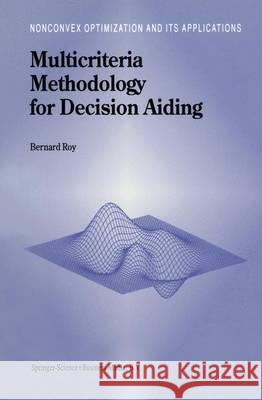Multicriteria Methodology for Decision Aiding » książka
Multicriteria Methodology for Decision Aiding
ISBN-13: 9781441947611 / Angielski / Miękka / 2010 / 293 str.
axiomatic results should be at the heart of such a science. Through them, we should be able to enlighten and scientifically assist decision-making processes especially by: - making that wh ich is objective stand out more c1early from that which is less objective; - separating robust from fragile conc1usions; - dissipating certain forms of misunderstanding in communication; - avoiding the pitfall of illusory reasoning; - emphasizing, once they are understood, incontrovertible results. The difficulties I encountered at the begining of my career as an operations researcher, and later as a consultant, made me realize that there were some limitations on objectivity in decision-aiding. In my opinion, five major aspects must be taken into consideration: 1) The borderline (or frontier) between what is and what is not feasible is often fuzzy. Moreover, this borderline is frequently modified in light of what is found from the study itself. 2) In many real-world problems, the "decision maker D" does not really exist as a person truly able to make adecision. Usually, several people (actors or stakeholders) take part in the decision process, and it is important not to confuse the one who ratifies adecision with the so-called decision maker in the decision ai ding process. This decision maker is in fact the person or the set of persons for whom or in the name of whom decision aiding effort is provided.











